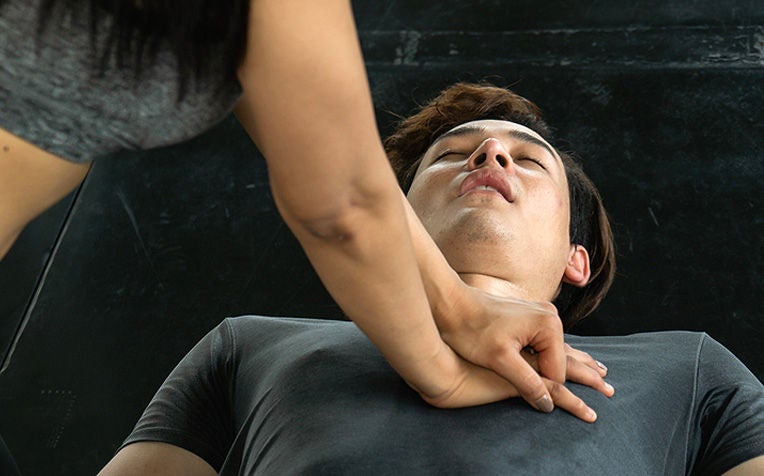
When sudden cardiac arrest strikes , call an ambulance, and perform CPR or use a defibrillator to restore the person's heartbeat back to normal.
What is sudden cardiac arrest (sudden cardiac death)?
Sudden cardiac arrest is known to be a silent killer, because it usually creeps up on its victims without warning. The patient may collapse and lose consciousness within minutes. If emergency treatment is not provided, the patient may suffer sudden cardiac death.
Symptoms of sudden cardiac arrest
While most patients with sudden cardiac arrest do not experience any warning signs, some patients may display symptoms in advance. These prior symptoms include the following:
Weakness and fatigue
Sweating
Fainting and dizziness
Palpitations or irregular or rapid heartbeat
Chest pain, particularly in the centre and left side
Shortness of breath
Vomiting
Tightness of jaw on exertion or after meals
“If you experience any of these symptoms, you should consult a doctor, especially if you are at high risk for heart disease. This would be the case if you have a personal or family history of diabetes, high cholesterol, high blood pressure or heart disease,” says Clinical Associate Professor Ching Chi Keong, Senior Consultant, Department of Cardiology and Director, Electrophysiology & Pacing at National Heart Centre Singapore (NHCS), a member of the SingHealth group.
Diagnosis of heart disease is made with an electrocardiogram, blood tests and imaging tests.
How to help someone with sudden cardiac arrest
“The key to survival is early defibrillation. Each minute of delay before defibrillation reduces survival by about 10 per cent,” says Clin Assoc Prof Ching.
You can take the following steps to help someone suffering from sudden cardiac arrest.
Call an ambulance
Perform cardiopulmonary resuscitation (CPR)
Use an automated external defibrillator (AED), if available
Patients who suffer sudden cardiac arrest should be provided emergency treatment. Using a defibrillator to deliver an electric shock to the heart is the most effective emergency treatment. This can quickly restore the patient’s heartbeat back to normal.
Unsure how to do CPR or use an AED? Check out this video here.
An implantable cardioverter defibrillator (ICD) miminises risk for those with high-risk
For those at high risk of sudden cardiac arrest, an implantable cardioverter defibrillator (ICD) may be recommended. This is a pocket-sized device implanted in the body, which sends an electric current to the heart when the person's heartbeat becomes abnormal.
Tips to lower your risk of heart disease
Get your cholesterol levels and blood pressure checked yearly
Monitor your blood sugar levels if you suffer from diabetes
Lose excess body fat, especially around the waist
Exercise regularly
Quit smoking (if you haven't). Smoking multiplies your risk of sudden cardiac arrest by two to three times
Manage your stress
"To prevent sudden cardiac arrest, it’s important to get screened for diabetes, high cholesterol and high blood pressure and to stop smoking, especially if you are over 35 and have a family history of coronary artery disease," advises Clin Assoc Prof Ching.
Ref: R14
Check out other articles on heart health:
Heart Attack and Sudden Cardiac Arrest: How to Tell the Difference
How to Survive a Heart Attack When Alone
Sudden Chest Pains You Shouldn't Ignore
Heart Palpitations: When Are They Serious?
Contributed by


















 Get it on Google Play
Get it on Google Play